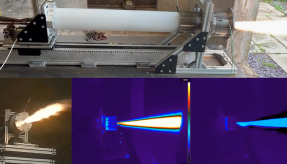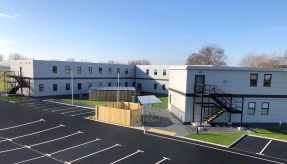
The Defence and Security Accelerator (DASA) will be holding a collaboration day to encourage collaborative projects in preparation for Phase 2 of the Regenerative Medicine on the Front Line competition.
The event will be held on 12 December 2018 and provide an opportunity for projects funded at Phase 1 of the DASA competition to seek collaborations required for the progression to Phase 2 and beyond.
The Defence, Science and Technology Laboratory (Dstl) and the Royal Centre for Defence Medicine (RCDM) carried out a scoping study to define how Defence should engage in the regenerative medicine research space, leading to the formulation of a strategy for supporting research in a number of areas.
Earlier this year, as part of that strategy, a funding competition was initiated through DASA entitled ‘Regenerative Medicine at the Front Line’. This sought proposals for regenerative technologies that could be applied very early after severe, traumatic injury resulting from combat or acts of terrorism in two research areas – bioengineered blood products and soft tissue regeneration.
Five projects were funded running from June 2018 to June 2019. If successful these projects will bid for Phase 2 funding to further progress the research towards exploitation. The team are committed to supporting exploitation of these projects and other work within the strategy.
The event seeks to encourage collaboration in the areas of research identified within the study, particularly with respect to Phase 2 of the DASA competition.
It will provide an opportunity for scoping study and associated strategy to be presented and will also encourage collaborative projects in the research areas identified within this strategy.
New funding will not be available at this event but it will provide an opportunity for research groups to collaborate on forthcoming Phase 2 bids and for research groups and other organisations to explore other collaborative opportunities.
To participate in this collaboration event, please register your interest by going to the Eventbrite page.
DASA will notify successful applications on 19 November. Any queries should be directed to accelerator@dstl.gov.uk
image Crown Copyright
If you would like to join our community and read more articles like this then please click here.
DASA Regenerative medicine regenerative medicine at the front line







